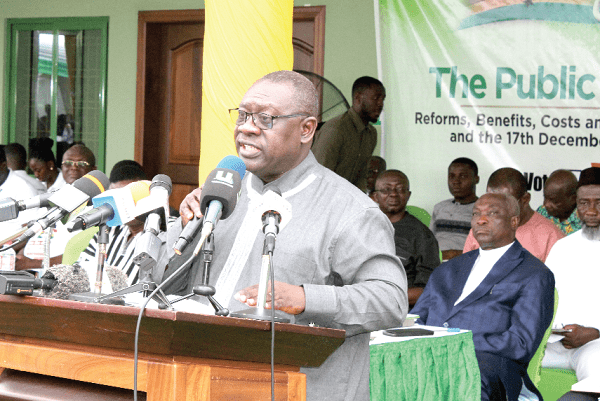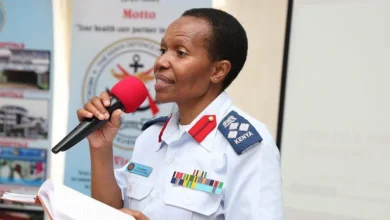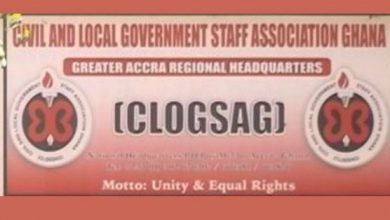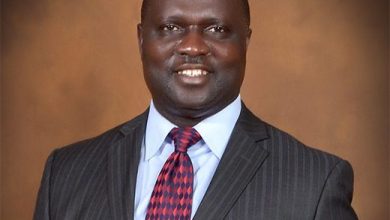News
President to devolve MMDCEs appointing power to public

The power of a President to appoint Metropolitan, Municipal and District Chief Executives (MMDCE) might soon be taken away.
Steps towards that end will begin in the next few weeks when Parliament resumes and revisits processes in amending Article 243 (1) of the Constitution.
The article gives the President the power to appoint all the 275 MMDCEs in the country.
In his State of the Nation Address in February 2018, the President announced his commitment to let go of that power through administrative and constitutional reforms.
Public conversation
The Deputy Minister of Local Government and Rural Development, Mr OB Amoah, on Wednesday announced that the amendment of the article was at its second stage of reading in Parliament.
Mr Amoah said this at a Public Conversation on “Reforms, benefits, costs and participation: MMDCEs elections and the 17 December 2019 national referendum.”
It was organised by the Institute of Democratic Governance (IDEG), in alliance with the Civic Forum Initiative (CFI), Ghana Journalists Association (GJA) and with the support of STAR Ghana.
In his address, Mr Amoah said Members of Parliament (MPs) had already held a debate over the amendment and voting had been deferred by the Speaker.
He, therefore, urged all political parties to impress upon their members to work in unison to amend the article, while expressing his appreciation for the fact that all parties were in agreement with the reforms.
Amendment
The Amendment of Article 243 (1) is one of the initial steps to the referendum on December 17 on the amendment of the entrenched Article 55 (3).
While Article 243 (1) gives the President the power to appoint MMDCEs, Article 55 (3) bars partisan political elections at the local level.
The article states: 3) Subject to the provisions of this article, a political party is free to participate in shaping the political will of the people, to disseminate information on political ideas, social and economic programmes of a national character, and sponsor candidates for election to any public office other than to district assemblies or lower local government unit.
Ghanaians will, therefore, have to decide in a referendum on December 17, on amending the article for partisan political elections at the local authority level.
Fully assuring
Mr Amoah quoted a 2015 Coalition of Domestic Election Observers (CODEO) report on the 2014 district assembly elections, which was held in September 2015, that said the consistent lack of interest in district level elections had implications for effective grassroots participation and inclusive development.
He said such challenges still persisted, with appointed MMDCEs owing allegiance to the President who appointed them rather than their people.
Mr Amoah gave an assurance that the reforms to enable partisan elections of authorities at the local level would promote local development and enable constituents to have a say in who to lead them.
Opportunities
The Chairperson of the National Commission on Civic Education (NCCE), Ms Josephine Nkrumah, who also chaired and moderated the function, encouraged all to support the efforts to make the country’s democracy work better.
In his welcome statements, the Executive Director of IDEG, Dr Emmanuel Akwetey, said local governance was about change and that the proposed reforms would lead to stronger development.
He said the reforms that would come about with the referendum on Article 55 (3) provided a unique opportunity that must not to be missed.
The President of the Ghana Journalists Association (GJA), Mr Affail Monney, said the GJA would commit its commercial and social interests to a campaign on getting people sensitised to the referendum and voting ‘yes’ for changes in the provision to enable partisan political elections at the local level.
The Chairman of the Civic Forum Initiative (CFI), Major General Nii Carl Coleman (retd), said the reforms would make citizens realise that when they voted, they were engaged in something worthwhile.
A General Secretary of the Ghana Pentecostal and Charismatic Council (GPCC), the Reverend Emmanuel Teima Barrigah, said the GPCC, at a meeting recently, asked its members to send the message of a ‘yes’ vote to all their members.
Source: Graphic.com.gh



